JUNE 2025

LAUNCHING SQUASH STARS: A NEW INITIATIVE TO GET KIDS INTO SQUASH

JUNE 2025

LAUNCHING SQUASH STARS: A NEW INITIATIVE TO GET KIDS INTO SQUASH

Independent research by leading consumer magazine Reader’s Digest found G.J. Gardner Homes to be New Zealand’s Most Trusted Home Builder once again.
Talk to us today and see why more New Zealanders trust G.J. Gardner to build their homes year after year.
0800 42 45 46 / gjgardner.co.nz
8. Mitchell Cup & Cousins Shield
10. Squash Stars - A new nationwide junior programme
11. Omrub supporting our juniors and clubs
12. PSA - Ali Farag announces retirement
14. HP - Countdown to Cairo
16. HP -Player profile: Maximus Mathews
17. Peak Performance with Kemp
18. Guest Writer - Carol Owens
20. Masters Tasman Team named
22. Player Magazine exctract
24. Referee
26. Club of the month - Waimea
28. Tournament Controller Pathway
34. Coaching - Equipment & The 90 seconds break
36. Volunteer of the month
40. MySquash - Level up your game

Stay updated with our other channels



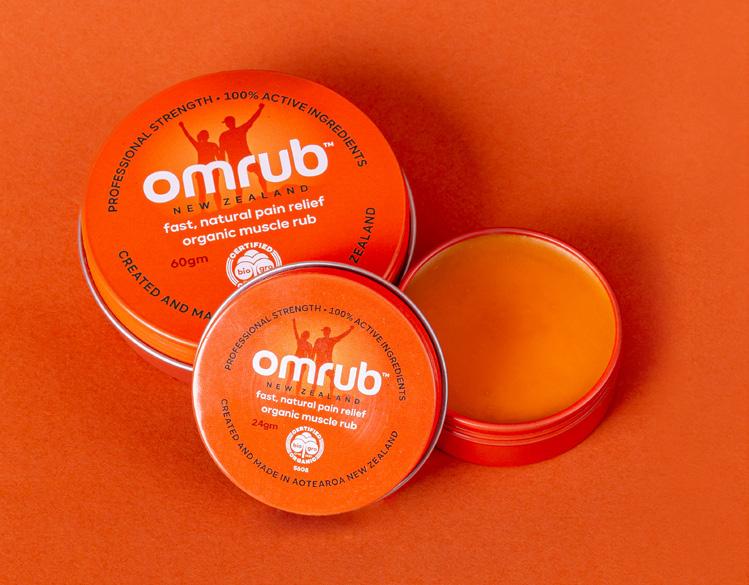
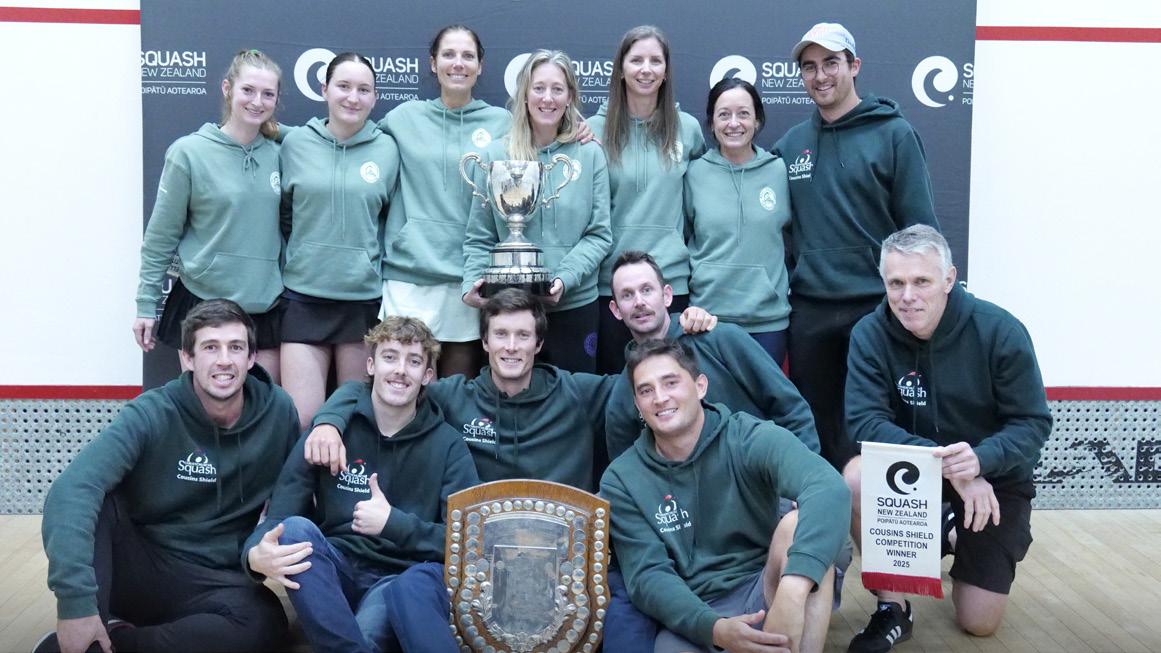
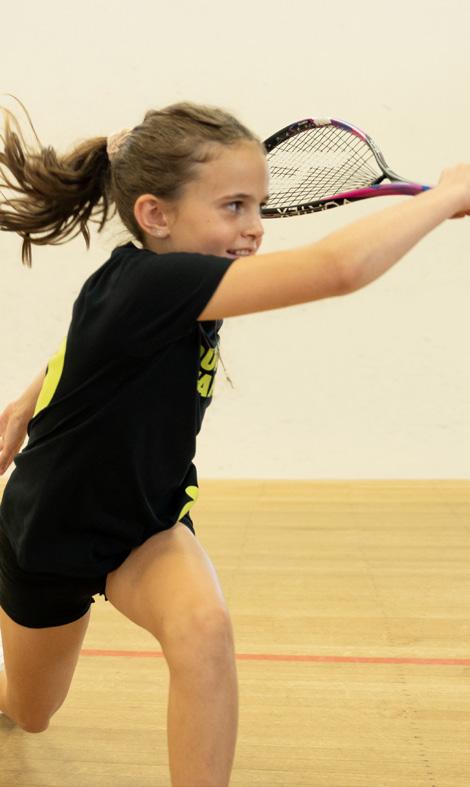


Tēnā koutou

We’re in the thick of the squash season, and the excitement is palpable. I had the pleasure of watching the finals of the Mitchell Cup and Cousins Shield via our live streaming channel. Even through the screen, the electric atmosphere was undeniable—I can only imagine how incredible it must have been for those lucky enough to witness it in person. Both finals went down to the wire, with every point fiercely contested and the crowd erupting with each hard-fought rally. What a spectacular event—and what an honour to win! Congratulations to Mount Maunganui and Christchurch Squash Clubs on securing their national titles.
Looking ahead, Paul and Joelle will be returning home to contest another New Zealand Championship, and we have a wealth of young talent eager to challenge them. The day after the NZ Champs final, we’ll be hosting
Otago Open
Auckland Junior Open
Northland Open
Wellington Open
Waikato Junior Open
Central Open
South Island & Canterbury Open
Midlands Open (PSA)
North Island Junior Championship
6th - 7th June
6th - 8th June
6th - 8th June
6th - 8th June
12th - 14th June
13th - 15th June
19th - 22nd June
28th - 31st June
28th - 30th June
our very first Squash New Zealand Golf Day, with both Paul and Joelle in attendance. Paul, in particular, is always keen for an opportunity to hit the golf course, so I encourage you to sign up if you’re coming to the NZ Champs in Auckland—and consider staying on to play with Paul and Joelle on Monday morning.
Another first this month: the Midlands Open will showcase the country’s top talent on our portable glass court in Temuka. This will be a fantastic opportunity to both play on and experience squash from the unique perspective that a glass court offers—a truly special experience for players and spectators alike.
Enjoy your squash this June, everyone!
Ngā mihi Martin Dowson
Otago Squash Club
Remuera Rackets Club
Whangarei Squash Club
Club Kelburn
Morrinsville Squash Club
SquashGym Palmerston North
Christchurch Football Club & Richmond Squash Club
Temuka Squash Club
Whangarei Squash Club
Don’t miss any upcoming events. Click HERE to access the full tournament calendar


Congratulations to Lana Harrison for winning her fifth Auckland Open title!
The Barfoot & Thompson Auckland PSA Open was held at North Shore Squash Club the 22-25th May. Read the article that featured in NZ Sportswire HERE
The World Squash Library publication, Squash Then And Now: A Celebration, is a lavishly-illustrated pictorial history of the sport, covering over more than 150 years. Read more about it HERE
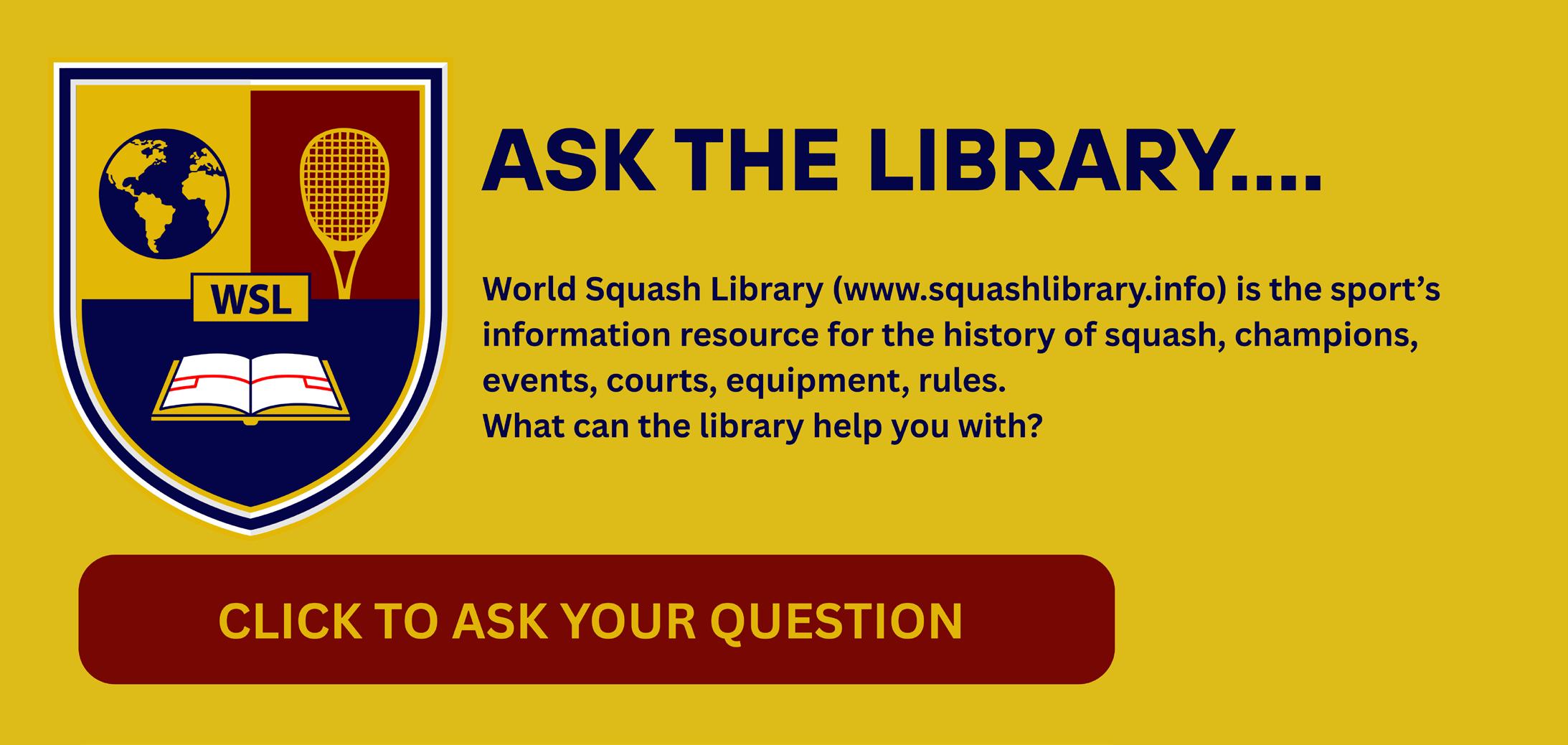
Hi
I’ve noticed what looks to be a mistake in my Mysquash. I saw a bigger jump than expected & when I checked turns out the math in the system isn’t correct. Also, the level that’s in Squash Levels isn’t the same as what’s in MySquash. Shouldn’t these two be the same?
Can you please advise if this is incorrect & adjust?
Regards
Jonathan
Hi Jonathan,
MySquash and SquashLevels will differ throughout the week – basically the level at the top of your profile in MySquash and what’s on the grading list updates every night, but the match history display updates only once a week.
As the system calibrates daily and will change the levels from your previous matches, these can drift apart until they resync on Sunday night when we do a full match history update. The reason we can’t do that every night is it’s a massive amount of data, hence only doing it weekly.
If you check on Monday morning, MySquash should have updated the levels in your match history to match SquashLevels.
Cheers
John

Hi
I’ve just taken over the role of helping our Club get some funding as we are struggling a little bit. Can you please advise if I can do a grant for our Club’s affiliation fees as this would help hugely? If so, how do I go about this?
Thanks Mark
We welcome letters to the national office. Please send your letter to admin@squashnz.co.nz
We will publish a selection each month, all questions will receive a response if not published.
Hi Mark
Thanks for your question and for taking the time to assist your Club.
Yes, you can apply to funders for affiliation fees, plus operational costs, repairs and maintenance, administrator’s salaries and coaching. However, every funder has different funding criteria so you will need to check with them first. Currently Pub Charity and The Lion Foundation do fund affiliation fees so you could apply to them. You will need a quote for your affiliation fees and a letter from Squash NZ stating you are affiliated to us. Just email admin@squashnz.co.nz to get this.
If you would like more information about who you can apply to for funding, please contact your District in the first instance then come to us as we will be able to assist you also.
Regards
Fleur


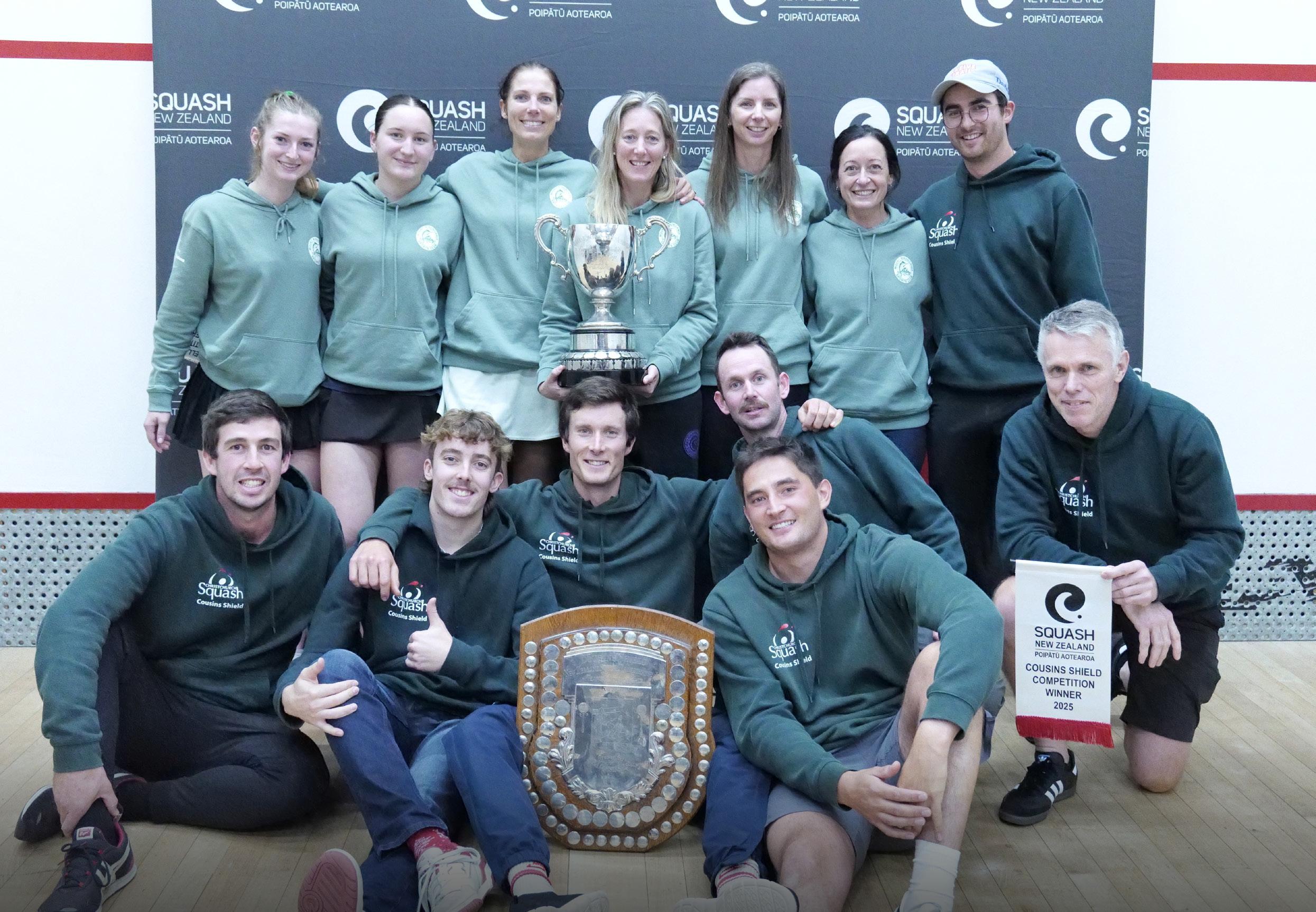
The 2025 Cousins Shield & Mitchell Cup, held at the Cambridge Rackets Club and Leamington Squash Club, was a resounding success. With 20 men’s teams and 14 women’s teams, the event drew a full house and delivered a weekend packed with high-intensity squash and vibrant camaraderie.
Spectators were treated to outstanding performances throughout the tournament, with players showcasing exceptional skill and heart as they battled fiercely for their clubs. Off the court, the atmosphere was electric, as players from across the country reunited and shared in the spirit of competition and community.
The Cousins Shield final was an instant classic — a fivehour thriller that went down to the wire. Christchurch Squash Club emerged victorious over Henderson Squash Club in a nail-biting finish, with both teams giving everything in pursuit of the national title.
The Mitchell Cup final, despite starting late, lived up to all expectations. Devoy Squash Club took an early lead, winning the first two matches and going 2-0 up in the third. But Mount Maunganui Squash Club staged a remarkable comeback, turning the tide to win 3-2 in an unforgettable showdown.
Congratulations to Christchurch Squash Club and Mount Maunganui Squash Club on claiming their firstever Cousins Shield and Mitchell Cup titles. It was a truly memorable event, both on and off the court.
Cousins Shield
1. Christchurch Squash Club
2. Henderson Squash Club
3. North Shore Squash Club
Plate – Taupo Squash Club
Mitchell Cup
1. Mount Maunganui Sports Club
2. Devoy Squash & Fitness Centre
3. Hamilton Tennis & Squash Club
Plate – Squash Gym Palmerston North





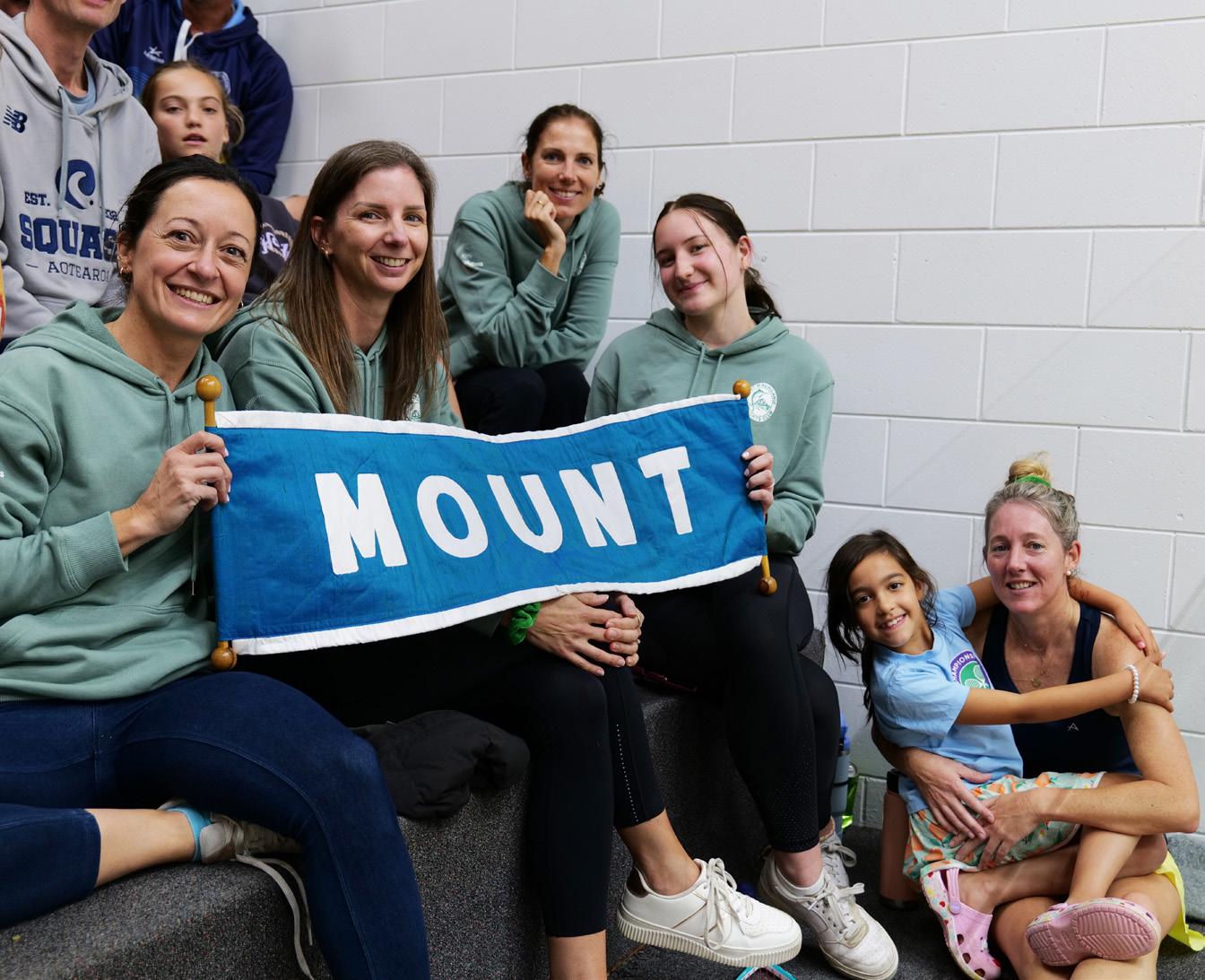


A fun and exciting way to introduce Kiwi kids to squash and help them grow their skills is being launched across the country.
Squash Stars is a new nationwide junior programme being run by Squash New Zealand Poipātū Aotearoa. The initiative is designed to build fundamental skills, confidence and a love for the game.
Squash Stars opens for enrolments on Tuesday 3 June, coinciding with the launch of a large national digital campaign, with more than 50 clubs around the country set to run the six-to-ten week programme starting in Term 3. The course is aimed at tamariki aged 5–12 years and is for both beginners and children with squash experience. It is designed as a welcoming, active, and confidence-building coaching programme, run in a fun and inclusive environment.

Squash Stars has been designed to be delivered in a variety of settings, such as a school hall. If you’re interested in having Squash Stars delivered at your local school, please contact us (or your local district) for more information.
Parents and caregivers can find more information, check participating clubs, and enrol online now at www.squashstars.nz.
The initiative will see every participant also receive a Squash Stars t-shirt and access to heavily discounted equipment such as rackets and balls to start them on their journey.
“We’re really pleased to be launching Squash Stars nationwide,” said Martin Dowson, Chief Executive of Squash New Zealand Poipātū Aotearoa.
“This programme is designed to make our sport more accessible and fun to young people. Squash Stars is about lighting that spark early and giving Kiwi kids a great experience in squash.”
The programme is part of Squash New Zealand’s wider strategy to grow junior participation and foster stronger community engagement across clubs, schools and whānau. The initiative has received generous support from several funding partners including Grassroots Trust, New Zealand Community Trust, The Lion Foundation, and Four Winds Foundation.
Squash Stars has been developed using modern coaching philosophies that emphasise play, connection, and movement. Each weekly session includes a mix of physical activity, squash skills, teamwork, and games –ensuring kids are active and engaged while developing a love for the sport.
Most squash players from juniors to…a lot older, will at some time suffer from body aches and pain while playing the sport we all love
To help keep players active and on the court from a very young age, Omrub is partnering with SNZ, trialing a way to raise funds for our juniors, while giving clubs the opportunity to make their club money and have a natural, safe and effective pain relief solution available as sore bodies come off court.
How will it benefit our juniors?
For every 10 pack of Omrub that a club buys, money will be donated to our junior development programme.
• Club purchase a pack of 24gm tins = Omrub donate $10.
• Club purchase a pack of 60gm tins = Omrub donate $20.
Clubs also make money from each tin sold – they purchase direct from Omrub at wholesale prices, and if they sell at a price below RRP, members buying Omrub from their club also benefit from the lower prices. Everyone wins!
Omrub owners Apa and Angela both have boys who have progressed through juniors and still play, so they say that supporting squash is a no brainer for them!
So get on board and start enjoyingpain relief - naturally.
Omrub is the only topical pain relief that is:
• 100% natural, certified organic
• Contains NO nasties
• Contains NO fillers like water –so a little goes a long way!
• N.Z. made and owned
To get on board and support our juniors by stocking Omrub at your club you can either: Email apa@omrub.com
Or sign your club up online at https://omrub.com/collections/omrub-wholesale


This month, we bid farewell to one of squash’s all-time greats—Egypt’s Ali Farag, a four-time World Champion and former World No.1, who announced his retirement from professional squash.
Farag’s legacy is profound. Over his illustrious career, he won 46 PSA titles, appeared in 81 finals, and spent 238 weeks at World No.1—the longest reign for any Egyptian man. His masterful play, combined with humility and intelligence, earned him admiration worldwide, including here in New Zealand.
Kiwis will particularly miss the thrilling Coll vs. Farag finals that have captivated audiences in recent years. These encounters were always intense, played with mutual respect, and exemplified the highest standard of our sport. Farag’s absence will certainly leave a gap in the matchups we’ve come to anticipate.
Farag’s connection with New Zealand deepened during the 2023 World Men’s Team Championships, where he impressed as both a player and an ambassador. His articulate media presence and warm engagement with fans made him a favourite here.


His retirement marks the end of a remarkable chapter, with highlights including his breakthrough 2017 U.S. Open win (where he and his wife, Nour El Tayeb, made history as the first married couple to win the same major on the same day), and his multiple victories at iconic events such as the British Open, Tournament of Champions, and Qatar Classic.
Ali leaves a lasting legacy, not only through his achievements but also through his exemplary sportsmanship. He will be deeply missed by squash fans in New Zealand and around the world.
New Zealand’s Paul Coll has been outclassed by Egyptian World No. 1 Mostafa Asal at the Squash World Championships in Chicago. Playing in the semi-final Asal made Coll work from the outset of the match, forcing the Kiwi to cover plenty of court by controlling the rallies to comfortably take the first game 11-5.
Coll, who was runner-up at the 2019 World Championships, tried to push up the court in the second but Asal once again managed to dictate the pace with quality squash.
Asal remarkably only made one error and hit 16 winners from the opening two games, and his immense defensive work in the third was rewarded by taking the game 11-4 and booking his place in the final.
“Paul is definitely an unbelievable player and it’s tough to play against him,” Asal said afterwards.
“He’s been World No.1, he’s been in finals and winning Platinums. It was a tough match and I’m glad to finish it in three.
Result: [2] Mostafa Asal (EGY) bt [4] Paul Coll (NZL) 3-0: 11-5, 11-5, 11-4

Whangarei Squash Club | Saturday 28th – Monday 30th June
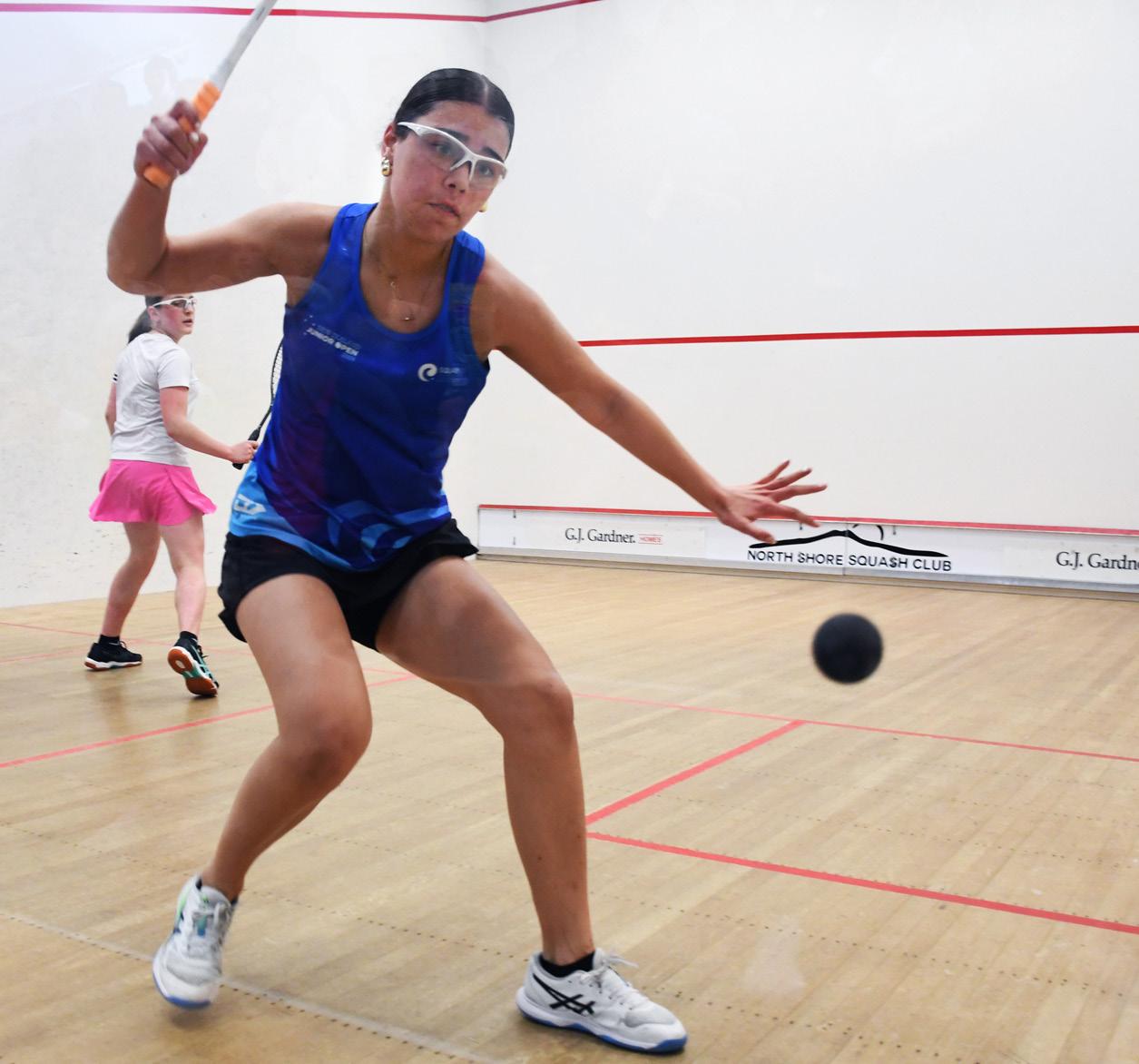
Entries
Enter in MySquash Competitions, Entry fee $45, Entries close Sunday 15th June.
Under 11, 13, 15, 17, 19 boys and girls divisions as at the last day of the tournament. 11am start on Saturday morning.
Info
Shelley Kitchen manager@whangareisquash.co.nz, 021 167 2817

With just weeks to go until the 2025 WSF World Junior Squash Championships in New Cairo, Egypt, New Zealand’s junior squads are deep into their preparation phase.
Following the team announcement last month, both the boys’ and girls’ teams have come together for their first major training camps and are now locked in on their final build-up toward the biggest junior event on the squash calendar.
In mid-May, the teams kicked off their preparation with two-day camps—the girls training in Tauranga and the boys in Wellington. These camps weren’t just about court time; they were designed to help the athletes sharpen their focus, define clear performance goals, and identify the most impactful areas to prioritise over the next two months.
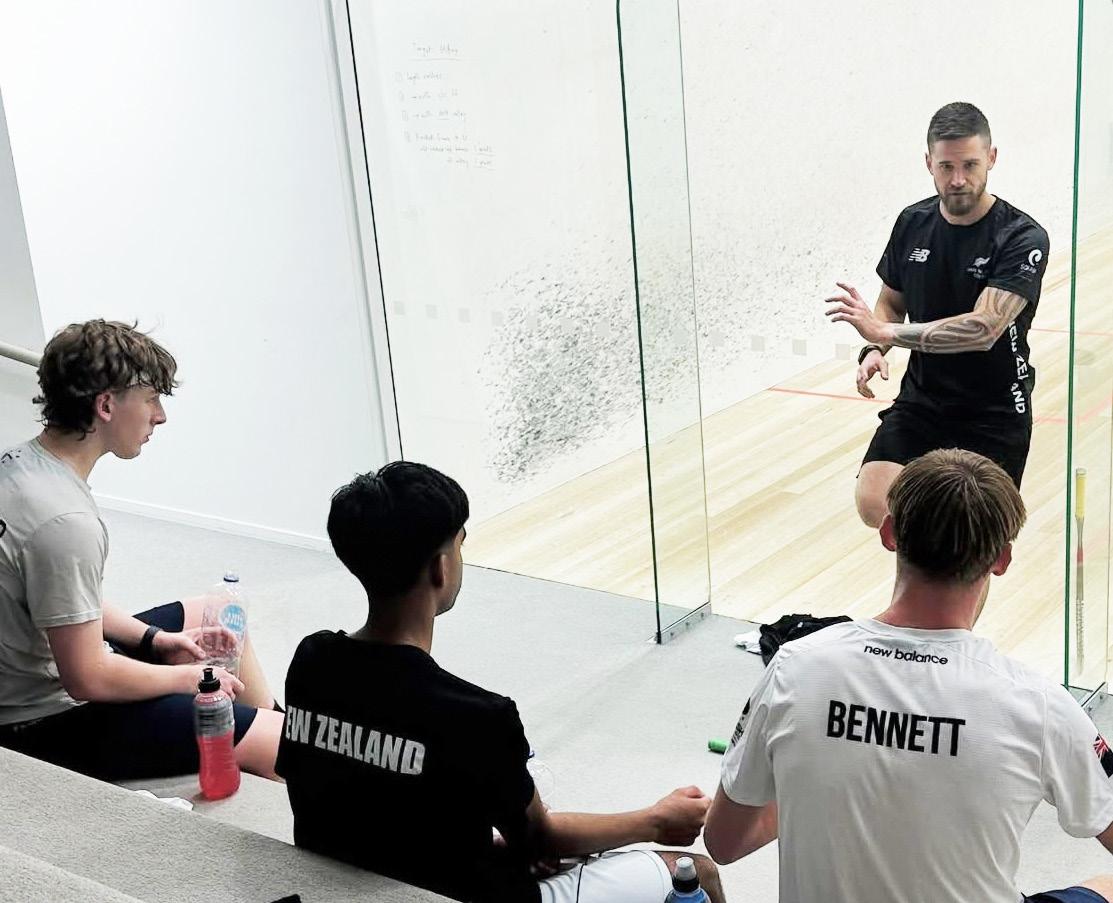
Players were challenged to reflect on how they train, how they compete, and how they can take greater ownership of their development. The message was clear: this is about learning, improving, and arriving in Egypt with intent—not just to play, but to grow.
The boys’ team is headlined by Oli Dunbar, New Zealand’s current number one junior. Oli has had a strong run in recent months, including a notable win over a top-100 international player, and a string of impressive performances against some of the world’s best juniors. Egypt—home to many of squash’s elite young talents—will be a significant test, and one Oli is preparing for with intent.

He will complete a crucial phase of his build-up in England, training with Rob Owen (coach to Paul Coll), before heading to Cairo, where he’ll be supported by his personal coach Evan Williams and National Coach Jonathan Kemp throughout the championships.
The rest of the boys’ team is young, with every member eligible for next year’s World Championships—and
some again the year after. This year’s event is a valuable stepping stone: a chance to experience the intensity of the world stage, benchmark themselves against international standards, and grow their competitive tools for the future.
Off the court, players are also developing analytical skills—learning how to tag matches, track patterns, and gain tactical insight. With notebooks in hand, they’ll be observing, reflecting, and learning what it takes to compete at the highest level. These habits lay the foundation for future success.

The girls’ team features two experienced campaigners in Ella Hill and Anabel Romero-Gemmell, both of whom have previously represented New Zealand at World Junior Championships. This will be their final World Juniors, and they head into the event with solid preparation and a clear sense of purpose.
Ella has made notable progress in her fitness and movement over the past year, showing increased strength and speed. Anabel, known for her sharp game sense and tactical awareness, has been working hard to return to full fitness after managing injuries during the selection phase and is steadily building back form.
They are joined by a group of athletes making their first appearance at the World Junior level. For these players, Egypt will be an invaluable learning opportunity— providing exposure to the international game and experience that will support their future development both domestically and abroad.
As part of Squash New Zealand’s National Development Programme, this campaign is about more than results in Egypt. It’s about helping young athletes understand what’s required to succeed at the elite level and encouraging them to take ownership of their journey.
We’re not just developing players who can hit the ball well—we’re working to shape adaptable, thoughtful, and self-driven competitors who can thrive in highperformance environments. That means learning how to prepare, how to reflect, how to grow, and how to handle the demands of international competition both mentally and physically.
As the countdown to Cairo continues, this group of athletes is focused on maximising their preparation. Through structured reflection, tactical training, and a mindset geared toward learning, they are doing everything they can to make the most of this opportunity—and to return home better, stronger, and ready for what’s next.


What’s your why? Why do you play squash?
I play squash simply because I love the game and love the challenge of finding new ways to better myself. I love being able to travel to new places, meet new people and learn new skills, which squash has given me many opportunities to do. I have also been privileged enough to represent my country, which I hope to do more of in the future.
What has been the most memorable moment in your squash career so far?
The most memorable moment of my squash career so far is definitely winning the Oceania under 17 boys title earlier this year in Hamilton
How do you stay motivated during tough training or competitions?
To stay motivated during tough trainings and competitions I like to think of all the time I spent unable to step on to the court due to injuries and how I always wished I could’ve. Now that I get the opportunity to play again I don’t take it for granted, which is a big motivation for me. I also like to visualise me achieving any goals I have set for the near future and how they make me feel. If that feeling is worth the pain of difficult trainings day in day out then I keep going, and it always is.

What’s one thing you’ve learned through playing squash that you apply to other areas of your life?
Who has had the biggest influence on your career, and how?
My dad has been the biggest influence on my career as he was who got me started when I was 8 and has been my coach ever since. I wouldn’t have achieved nearly as much as I have without him.
What do you think is the most important quality for success in squash?
The most important quality for success in squash for me is discipline. This is because without discipline, picking yourself back up after setbacks almost feels impossible, and as an athlete setbacks are inevitable. Discipline enables you to keep showing up for yourself every day and giving your best and not just when you feel like it.
When you’re not on the court, what do you enjoy doing in your free time?
I enjoy playing golf and hanging out with friends in my spare time. However due to school, training, and completions it is often pretty hard to find a balance. So it’s a work in progress.
One thing I’ve learned through playing squash that I apply to other areas of my life is the ability to be resilient. It is extremely hard to beat someone that never gives up. There have been many times in my life where I’ve wanted to just let something go and forget about it, for example schoolwork. I may not know something but being able to keep trying to figure out the answer is a valuable skill and is very important in squash.
If you could change one thing about the sport of squash, what would it be?
One thing I would change is the amount of people that play and watch. Squash doesn’t attract very big crowds which is part of the reason the funds are so low. So if I could change something I would change that.
What’s your ultimate goal in squash, and how do you plan to achieve it?
My ultimate goal in squash is world#1 and I am going to achieve this by showing up to every training and competition and giving my absolute best every time.
What’s something people might not know about you?
I love Wheet-bix

Whether you’re aiming to move up the ladder at your club or just want to improve quickly, learning fast can make a huge difference in how much you enjoy squash, and how competitive you become. Here are five habits that can help you accelerate your progress on court:
1. Be Curious, Not Just Competitive
Fast learners constantly ask why. Why did I win that match? Why did I lose control in that game? Instead of just playing to win, play to learn. Be analytical. Take notes. Curiosity fuels improvement.
2. Focus on One Thing at a Time
Don’t try to fix everything at once. Choose one skill—like preparation, tighter length, or volleying more—and make it your goal for the next few weeks. Mastery comes from deliberate focus, not multitasking on court.
3. Ask for Feedback (Then Use It!)
Whether from a coach or a more experienced player, constructive feedback is a shortcut to improvement. But it only works if you reflect on it and apply it consistently in your practice and matches.
4. Record Yourself
Video is an incredibly useful tool for fast tracking development. Watching yourself play reveals habits you didn’t know you had. Use it to track progress and spot areas for improvement in your game. Watching professionals playing and comparing yourself to them can also help you to identify areas where you are weak.
5. Play Different Opponents
It’s easy to stick with playing the same people every week, but you learn much more from playing people whose game isn’t familiar to you. You also need a balance of playing players who you can beat, so you can practice what you are working on in a competitive situation, and players who are better than you, to find out where your game is still lacking. Fast learners see every match as a learning opportunity.
Final Tip:
Improvement isn’t always visible day to day. Keep showing up, keep learning intentionally, and you’ll be surprised at how quickly things click.


From humble beginnings at her local squash club to the top of the world stage, Carol Owens’ journey is a testament to grit, family, and passion. A two-time World Champion and Commonwealth Games gold medallist, her path was shaped by sibling rivalry, supportive mentors, and fierce determination. In this personal reflection, she shares the moments and relationships that defined her life on and off the court. Here is her story:
My name is Carol Owens, and I played on the professional squash circuit (in those days called the Women’s International Squash Players Association circuit) from 1990 to 2004.
My claim to fame is winning two World Championship titles (2000 & 2003) and a Commonwealth Doubles Gold medal in Manchester 2002 alongside Leilani Joyce. I was also a silver medallist in the singles - who remembers second though?! Very importantly, I was also featured in an onboard Air NZ Quiz.
My father Brian introduced me to the sport; we have very similar personalities so what captivated his love for the game very quickly captivated mine. He was exceptional at deliberately annoying me and winding me up with unconventional shots and trickery. This was really useful in helping learn to control my emotions.
My mother Margaret and two older siblings David & Anne also played. So I really had no choice - the club was where we hung out with families who loved squash.
My story is very similar to many squash players who have gone on to achieve a high level in the sport, countless hours at the courts, watching, absorbing, discussing and playing. I wasn’t really a normal kid - I enjoyed my own company, invented my own games, had make believe friends and if I wanted something no one could stop me. I was incredibly determined, stubborn as a mule, and fiercely competitive. My brother David was my closest competitor, growing up everything became a competition. Who could dry the dishes the fastest (timed of course), who could drink a glass of water the fastest and who could hit the hardest! Our boxing matches never ended well for me but I always thought I could win - despite David being 2 years older and twice my size!

As a child I was not particularly academic and loathed being told what to do. If my parents told me something was black I would insist it was white. While writing this, my mother reminded me of a time she begged me to eat three (yes three) green beans, so I cried, had a tantrum and refused to eat them. I’m not embarrassed to admit these shortcomings as if I’m honest I believe they are what made me become the player I was and the person I am today.
I remember the first occasion I met Vicki Cardwell at the Victorian U/13 state championships. I was in awe of a player who had won four British Opens and a World Open. I had just played a five set match which I had lost. Her words to me were a priceless gift: “You’ve got what it takes to make it - G&D”. I immediately asked “What’s G&D”? and she replied “guts & determination.” Vicki went on to say that you can train the skills and physical parts of your game but G&D is in your DNA. That was all I needed to make up my mind that this game was for me.
My brother David was a real talent, A grade at a young age and someone I looked up to and learned from. When I was eleven, he was having coaching with Judith Fitz-Gerald, mother of five-time World Champion and childhood friend Sarah Fitz-Gerald. Not to be out done, I insisted to my Mum that I needed to have coaching.
I was seeded sixth in the World Juniors and placed 3rd in Hamilton. That was a breakthrough moment and fairly soon afterward I turned pro, and four years later at age twenty-one New Zealand became my home.
After fifteen years playing on the world pro circuit I decided to call it a day. My passion for the sport continued and alongside a sales role I took up coaching at Eden Epsom Tennis & Squash club in Auckland.
He was exceptional at deliberately annoying me and winding me up with unconventional shots and trickery. This was really useful in helping learn to control my emotions.
It took me many years to realise that not everyone plays the game to be the very best in the world. Seeing players enjoy the sport and grow in confidence is all part of success and I find teaching incredibly satisfying. I am very proud to have coached players who have represented school teams, district teams, worn the silver fern and gained university scholarships in the US.
I was a very uncoordinated child and to my delight Judith said she would love to coach me as I could not hit the ball and had no bad habits! It’s this reminder that has made my coaching career all about technique. Judith was known in Melbourne as the best of the best and she coached hundreds of juniors to hit a beautiful squash ball. At one stage Judith sent my brother and I to ballroom dancing lessons to teach us how to move with coordinated movements, which was all good fun until my then fifteen year old brother became more interested in partnering up with the girls than with his sister. Ballroom dancing was great advice as we slowly learned how to gracefully move our two left feet. I was incredibly lucky to have started in squash with a highly respected technical coach and in my first event be told by a former world champion that I had G&D. I was blessed with a supportive family and had the very best of role models growing up in the sport.
In 1988 at seventeen I received a scholarship to the Australian Institute of Sport in Brisbane under the guidance of Geoff Hunt & Heather McKay. I completed my final year at school and trained at AIS for the 1989 world junior championships in Hamilton. Whilst at AIS I began to learn the value of proper nutrition and although a bitter pill to swallow, finally had to concede that Mum was right about the beans all along. I’m sorry for everything I put you through Mum.
Around that time I wrote a letter to my parents (which I still have), thanking them for all their support. In the letter I told them I would make them proud and one day become world champion! My mum says she told Dad “Our girl is dreaming, but good for her that she has these goals”.
People often ask me why I don’t still play. There are three answers; I’ve had my time, I hate to lose and my body won’t let me!
This game has given me so much, opportunity, travel, friends, a second family at the Eden Epsom Club who have continually supported me, and a livelihood, but ultimately achieving all this has come down to just a couple of things, a lot of very hard graft, and people; in particular my family, mentors and coaches.
From my humble beginnings with Judith Fitz-Gerald, I was helped enormously by Vicky Cardwell, Gary McIntosh, Paul Wright and Robbie Burnett without whom I would have never achieved the successes I did.
I’ve loved (almost) every minute of it and would do it all again in a heartbeat.
Carol is currently the Professional Squash Coach at the Eden Epsom Tennis & Squash Club. She coaches the beginner ladies morning, Juniors and any other squash player who wants to improve their game. She can be contacted on 027 4826306.
We welcome guest writers in The Boast!
If you have something you would like to contribute with, please email admin@squashnz.co.nz for further info.
Squash New Zealand Poipātū Aotearoa is excited to confirm the NZ Masters team selected in May 2025 to represent Aotearoa in the upcoming Trans-Tasman Masters Test Series, set to be held in Perth, Australia.
NZ Masters Team Named to Defend Trans-Tasman Title in Perth
Squash New Zealand is excited to confirm the NZ Masters team selected in May 2025 to represent Aotearoa in the upcoming Trans-Tasman Masters Test Series, set to be held in Perth, Australia.
This year’s team is a mix of experienced veterans and enthusiastic first-timers, united by a shared goal: to defend the Trans-Tasman Trophy, following a historic win on home soil in 2023.
Building on a Historic Victory
New Zealand’s victory in 2023 was only the third time the country has won the Trans-Tasman series in its 23-year history, with the previous two wins coming in 2000 and 2011. The result was especially impressive given that the team included seven debutants, and not all players were first-choice selections in their age divisions. It was a performance defined by team unity, resilience, and an unshakable spirit—qualities the 2025 team will look to replicate as they take on Australia in Perth.
Eyes on Perth: 2025 NZ Masters Team
The current squad blends proven experience with new energy. Returning players like Lisa Ashton, Scott Gardiner and Mark Waldin will be key leaders as seasoned veterans in the Trans Tasman Test series, while Tracey Kimble, Stacey Rata-Hodgson, Helen Gibbs, Matt Nation, Paul Mason, Jon Cheesman and Tim Preston make their first appearances in the Trans-Tasman format.
2025 NZ Masters Team – Selections for Perth
Women
35+: Tracey Kimble
40+: Stacey Rata-Hodgson
45+: Erin Ellery
50+: Suk Hee Kim
55+: Lisa Ashton
60+: Helen Gibbs
65+: Sandra Lelievre
Men
35+: Matt Nation
40+: Paul Mason
45+: Jon Cheesman
50+: Scott Gardiner
55+: Tim Preston
60+: Brett Meyer
65+: Mark Waldin
Leadership and Support
Joining the team in Perth is Kathryn McKay, who will travel as Team Manager. Kathryn brings a wealth of experience and a trusted presence, with a strong track record of involvement in the Trans Tasman Series. Her steady leadership and excellent rapport with the team will be invaluable throughout the campaign. With confidence built on recent success and a motivated new squad, the 2025 NZ Masters team is ready to compete hard, support each other, and proudly represent New Zealand on the international stage.


Somewhere in the early hours, beneath Cairo’s sodium haze and a!er the last shuttle bus had long since le!, Malak Khafagy was standing at baggage claim.
Her luggage, which held her match kit, her rackets, her shoes, her identity as a squash player, wasn’t there.
She had landed bleary-eyed from Pakistan at 1 am, hoping to compete in one of the biggest tournaments of her life, and the contents of her squash bag — now adri! in the ether of airline logistics — held her chances of even stepping on court.
This is squash at the edges: not the spotlight, not the glass box show court, but the corners of the tour, where the top seeds travel with physios and the wildcards borrow kit from their sisters. Where being good — even really good — is no guarantee that anyone will watch, or care, or even get your name right.
But Khafagy played. Of course she played.
Wearing kit borrowed from her sister and someone else’s shoes, she stepped onto the court in El Gouna to face Scotland’s Georgia Adderley, who like Khafagy — occupies that familiar squash no-man’s land between obscurity and breakout.
Five games. Fi! y-nine minutes. 5-11, 11-9, 1-11, 11-5, 14-12.
And then it was over. Khafagy had won. Her first PSA match win in four months. A match worthy of a headline. A photo, maybe. But no roar of a crowd. No televised replays. No sponsors queuing for quotes.
Just a player who landed in Egypt without her luggage, and found herself somehow still standing, still swinging, in round two.
“I’m really happy to win this one today,” she said a!erwards. “I didn’t have any of my equipment… I arrived at 1 a.m. the day before yesterday and I was borrowing everything: my sister’s shoes, her rackets.”


There’s something both tragic and tremendous in this. Sport likes to mythologise these kinds of victories — gritt y, underdog, last-minute heroics.
But in squash, there’s no myth machine. Just the facts. Just the player, and the court, and the silence.
Adderley, too, fought like hell. In the fi!h game she clawed her way back from 5-9 to 12-11. She held match ball. She was a single rally away from winning it. But Khafagy stole it back. Stole three points. Stole the match.
There’s no bonus points or commemorative plaques for delayed luggage or mid-match anxiety. Just a result on a website and a line in a draw sheet.
When we talk about professional squash, it’s easy to forget that most players operate far from the glamour of finals day. That the
“Just a player who landed in Egypt without her luggage, and found herself somehow still standing, still swinging, in round two’


daily diet is travel stress, minor injuries, lost sleep and lost rackets. The tour is brutal not just physically, but logistically, emotionally, financially.
And so much of it is done alone.
“I had to warm up in someone else’s shoes, with a different racket,” Khafagy said. “I wasn’t sure I’d even be able to play.”
She wasn’t complaining. She was just telling the truth. Which is o!en stranger than fiction.
There will be more matches. More wins and losses. One day, if everything goes right — if the stars align and the rackets arrive and the sponsors care — Khafagy might even find herself on an event poster.
But for now, this was the moment. A quiet win in an overlooked round, built on borrowed gear, jetlag, and sheer bloodymindedness. Nobody asked her to do it. Nobody guaranteed it would matter. But still, she did.
That’s squash.
One of the most difficult aspects of refereeing a match for many people is making the decisions around lets and strokes.
Obviously, each situation will vary according to the movement, position and skill level of the players, however there are some common lines of thinking that can be used when you need to make these decisions.
1. The ball
• Was it tight against the wall or rolling along the floor
• Was it a significant distance away from the player (forward or back)
• Had it already bounced twice
• Was it really high when they asked for the let
Consider if the player could have got to and played the ball? If the answer to this is no, then the decision will be a No Let. If the answer is maybe, then a Yes Let might be the appropriate decision
2. The outgoing player
• Was the outgoing player making every effort to clear and give access to the ball
• Were they preventing the incoming player from being able to make a shot
• Were they preventing a shot from being able to be played directly to the front wall
3. The incoming player
• Was the incoming player making effort to get to and play the ball
• Were they showing intent – racquet prepared, body in position to play the shot
If the shot or access to the ball is prevented, and there was little or no effort to clear, then a Stroke may be the correct outcome.
If there is effort to clear, and the ability to get to the ball and play the shot was affected, then Yes Let.
If there is little intent to prepare for the shot, or effort to go to the ball by the incoming player, or there was space to play the ball safely then consider a No Let
This is a very general guide to the decision-making process, but is a useful line of thinking to consider the relevant factors when faced with 2 players who want you to make a fair decision. When you do this, it is always good to have a reason for your decision if needed, and using this process will help you do that.
For further guidance around specific situations, check out Resources – World Squash Officiating HERE
Player A in front goes to volley the ball, misses it completely and falls over. They are in no position to have a second attempt. The ball goes through and hits Player B. Whose point is it?
Point to Player B
Rule 9.2.2: Ball hitting a player
If the ball hits the non-striker, or the nonstriker’s racket, after the striker has made one or more attempts to strike the ball, a let is allowed, providing the striker could have made a good return. Otherwise, the nonstriker wins the rally.
Do you have a refereeing question or a situation you are not sure about?
Chances are others may have the same query. Send your query to our NZ Referees c/mikejack@xtra.co.nz and we will share the answers with the squash community each month.
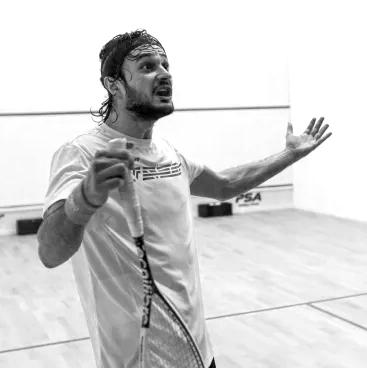
Please note – every situation is different and without seeing the exact context (player skill, direction of movement etc) we are giving our responses based on the rules and some guidance on how to apply them.

A fantastic sponsorship opportunity to connect, engage, and celebrate squash along with Paul Coll & Joelle King
7th July at Pupuke Golf Club, North Shore, Auckland Starts at 9.00am with prizegiving and nibbles to follow.
Hole sponsor – $1200
• Exclusive hole signage (1 hole)
• 1 x complimentary team entry (4 players) valued at $400
• Logo featured on digital event promotions
• Ability to promote branding and custom activation at the hole
• Branding on the SNZ website, Social Media, in the Boast and on the Competition Scoring App
Other Sponsorship opportunities – From $250
Talk to us about sponsoring the following and how we can benefit each other:
• Longest drive
• Nearest to the pin
• Drink cart
Get in touch now to lock in your sponsorship or contact us for more information on admin@squashnz.co.nz or phone Fleur 0210431521.


Help us make this day a success! We invite donations of prizes, goods, services, and vouchers. Join in and play with us!
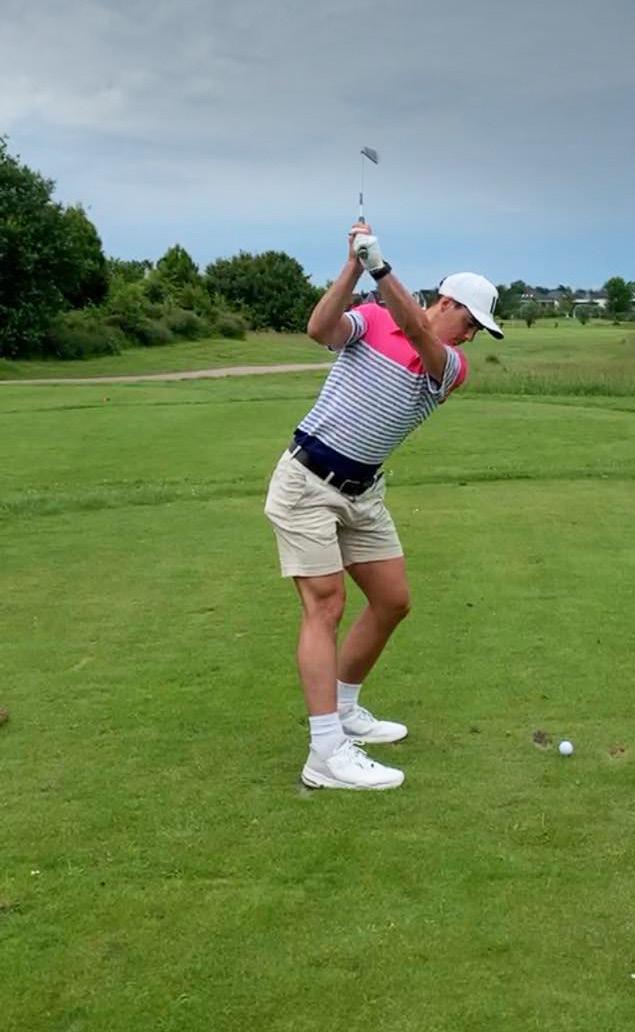
Q1: Who is the youngest ever winner of the world junior championships?
Q2: How many years has Joelle King been on the PSA world tour for?
Q3. What does PSA stand for?
Q4. How many Squash Courts are there in the world? a) 10,000 b) 25,000 c) 50,000 d) 75,000.
Q5: Who won the Performance Coach of the Year award for 2024?
Q6: Where is the 2025 World Junior Squash Championships being held?
Q7: Who recently won their 5th Auckland Open title at the Barfoot & Thompson Auckland Open PSA?
Q8: What brand squash racket does Paul Coll play with?
Answers on p. 27
A thriving hub for community, competition, and connection. Waimea Squash Club is a standout example of what makes a squash club truly thrive—strong leadership, an inclusive culture, and a deep passion for the game.
With strategic planning, volunteer dedication, and vibrant community involvement, Waimea continues to grow both on and off the court.
Waimea has recently completed facility upgrades, including a new bar and kitchen. These enhancements are part of the club’s ongoing commitment to providing a modern and welcoming environment for its members and guests. In February 2025, the club also implemented Starlink internet to improve its previously limited connectivity. This upgrade has been instrumental in supporting live scoring and streaming during events, such as the recent Waimea Open. The club utilized the new MySquash live scoring system during the tournament, receiving valuable feedback from players and tournament control, which was subsequently shared with Squash New Zealand.


Looking ahead, Waimea Squash plans to discuss further improvements during their upcoming strategic planning meeting. Proposed enhancements include the installation of new carpet and curtains, aiming to further elevate the club’s facilities and member experience.
Despite significant investments in HelloClub, the club remains financially strong, reflecting years of careful planning and stewardship. A diverse committee with expertise in law, business, education, IT, and finance ensures professional and effective governance, guiding the club towards continued success and growth.
Sponsorship is a key revenue stream, with 4 court tin sponsors, 13 wall sponsors, a front door sponsor, and long-time supporters like NBS and Pak’nSave. New opportunities, including bar and kitchen plaques, are launching soon.
• Business House League team fees
• Sponsored Wednesday Night Social League rounds
• Monthly meat raffles at Club Waimea, raising approx. $2,100 annually
Together, these efforts bring in $6,000–$7,000 each year. Court hire income has nearly doubled in 2024, thanks to HelloClub increasing social play and visitor payments.
Waimea offers flexible memberships for families, couples, seniors, tertiary students, and juniors, providing full access to a wide range of facilities, including squash courts, outdoor bowling greens, darts, snooker/pool, cards, dance groups, and dining options. The club also covers the Squash New Zealand competitive levy, ensuring no additional cost for those who participate in competitive squash. New members receive a personalized welcome email and a phone call from the President, an approach now adopted by other clubs due to its proven impact on engagement. Additionally, a monthly newsletter is sent out, covering recent activities, player achievements in tournaments, and advertising upcoming events, ensuring everyone is aware of what the club is doing and what’s coming up.
Social squash is central at Waimea. The Business House League connects local employees to the sport in a fun, low-pressure setting and has brought in 10 new members over the past two years.
The Wednesday Night Social League, filled with 9 teams of 5, fills up quickly each term. Open to all levels, it’s supported by local sponsors and runs a unique timed-play format. This also brings in about 5-10 new memberships each year.
Saturday Club Afternoons offer a casual way to meet players and enjoy a post-match drink, while the festive Christmas Doubles Tournament—complete with fancy dress and a sausage sizzle—is a seasonal favourite.
In 2024, Club Waimea focused on enhancing its junior squash development programs. The club hosted training sessions for Waimea College students and piloted a junior coaching series, with plans to refine these offerings in the upcoming season. Collaborations with nearby clubs ensured strong regional representation at events like the Heaphy Shield and Cousins Shield.
The recent Waimea Open was a significant success, attracting over 80 entries, including 13 new junior members. This success, coupled with positive feedback from teenage players, led to the initiation of a Friday night high school hit session. Additionally, the club plans to enrol in the new Squash Stars junior program for Term 3. A committee member, also a teacher, has been instrumental in promoting squash at the high school level and is coaching new players for the upcoming secondary schools squash competition in June.
Home to Nelson Bays’ largest pool of graded players, Waimea continues to shine on the competitive stage. Key 2024 highlights included:
• Jack Gibb – Top 10 U19 Nationals, Canterbury Inter-District Champion
• Bihandu Nanayakkara – 3rd in U17 Nationals
• Karen Walton – Honoured at the Canterbury Squash Legends Dinner
• Cousins Shield Team – Division 2 winners, “Team of the Year”
• 2024 Representatives – Nick Burns, Susan O’Connell, Barry Roberts, Karen Walton, Jack Gibb
Club Secretary Barlee van Niekerk played a major role in the region’s transition to HelloClub/iSquash and attended the Squash NZ Roadshow earning a Volunteer of the Year nomination in 2024. Meanwhile, Sarena Harwood led acclaimed workshops for Canterbury’s Women’s Development Squad. Waimea is also contributing to the planning and delivery of the 2025 NZ Masters being hosted by the Nelson Squash Club, proving its dedication to squash on every level.
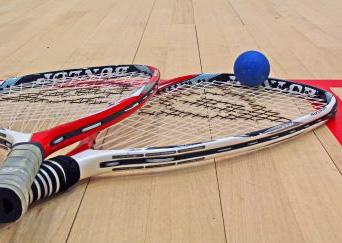
Get ready for some fast-paced action at the NZ Racketball Open, happening 4–5 July at Herne Bay Rackets Club!
Whether you’re a seasoned Racketball / Squash57 competitor or just keen to give it a go for the first time, this event welcomes players of all levels.
Event Details:
• Dates: 4–5 July 2024
• Venue: Herne Bay Rackets Club
• Entry Fee: $35
• Guaranteed 3 matches
• Saturday prizegiving & dinner
Entries close 29 June, so don’t miss out!
Enter now at www.mysquash.nz
Or contact Cherie on 027 223 3975
Answers to squash trivia (from p 25)
A1: Nour El Sherbini (13)
A2: 21
A3: Professional Squash Association
A4: c) 50,000
A5: Evan Williams
A6: Cairo, Egypt
A7: Lana Harrison
A8: Head
Running a successful squash tournament isn’t just about booking courts and setting up drawsit takes planning, foresight, and good financial management.
That’s why each month The Boast is putting the spotlight on the Tournament Controller Pathway Course—a practical, empowering way for club volunteers to take their events to the next level.
Whether you’re new to squash admin or a seasoned organiser, this course is packed with tools, templates, and tips to ensure your next event runs smoothly and within budget.
A Tournament Controller is the backbone of any well-run event. They’re responsible for planning, budgeting, scheduling, and problem-solving. The Tournament Controller Pathway Course offers training in these key areas, and gives you access to essential resources like the Event Planner Excel Tool.

This month’s biggest takeaways - How to budget smartly.
Too often, clubs finish a tournament only to find they’ve lost money. That’s where budgeting comes in. With a solid budget in place, your club can plan to break even—or better yet, make a profit.
Tips from the Course:
• Start early: Begin budgeting as soon as your event is confirmed.
• Use the template: Download the event planner Excel sheet and use the “Event Budget” tab.
• Keep it simple: Easy-to-read budgets are easier to manage.
• Update regularly: Track income and expenses as they come in.
• Close the loop: Finalise and save your budget after the event—it’ll help you plan even better next time.
• Prizes > Prize Money: Offer sponsored prizes instead of cash to cut costs.
• Get Creative: Raffles, local sponsors, and community potlucks can boost revenue and reduce spend.
• Bar Profits: If you run a bar, keep those finances separate—any profit can go toward future club upgrades.
• GST Awareness: Know what you can and can’t claim GST on (hint: you can’t claim it on prize money).
Pro Tip: Check previous years’ budgets as a starting point. Patterns can help you plan more efficiently.
Whether you’re hosting a grassroots tournament or a national showcase, this course gives you the practical skills to lead with confidence and plan with purpose.
Ready to run smarter events and grow your club’s impact?
Sign up for the Tournament Controller Pathway Course today.

Whether you’re a parent looking for a fun, active way to keep your kids engaged at home, or a club keen to promote squash in your community, the Rally Wall is the perfect solution.
This lightweight, portable squash wall makes it easy to play anytime, anywhere—ideal for driveways, backyards, school halls, club open days, and local events. Designed to support both personal and club use, the Rally Wall is now available to all affiliated Squash NZ members at an exclusive discounted price.
Why Choose the Rally Wall?
For Parents and Families:
• A great way to keep kids active and learning a new skill at home
• Quick to set up and easy to store
• Encourages healthy, screen-free fun for children of all ages
• Ideal for solo practice or playing with friends and siblings
For Clubs, Coaches, and Volunteers:
• A powerful tool for running outreach sessions at schools, parks, or events
• Helps relieve pressure on busy courts with a fun, alternative training option
• Boosts visibility and engagement with potential new players
• Quick, reliable setup—ready to go in under five minutes
Features at a Glance:
• Lightweight, adjustable, and robust
• Suitable for solo or multi-player use
• Designed for indoor or outdoor settings
• Helps grow the game from the ground up
Exclusive Member Offers – Save Over 75%
Affiliated Squash NZ members can take advantage of these limited-time deals:
• Rally Wall + 3 Foam Balls –$149.00 + delivery
• Rally Wall + 2 Junior Rackets + 3 Foam Balls –$199.00 + delivery
Delivery Costs:
• Auckland – $7.40
• North Island – $17.30
• South Island – $24.70
• Rural Delivery – add $3.65
Whether it’s helping a child build confidence at home or boosting participation at your club, the Rally Wall is an investment in the future of squash.
Visit squashnz.co.nz/shop to order yours today and check out more junior equipment specials.
Ashburton Squash Club | Friday 11th – Saturday 12th July

Entries
Enter in MySquash Competitions, Entry fee $40
Entries close Wednesday 2nd July
Divisions
Under 11, 13, 15, 17, 19 boys and girls divisions as at the last day of the tournament
Queries To:
Scott Broker 027 6593132
Katrina Palmer 021 841 812
ashburtonsquashclub@hotmail.com

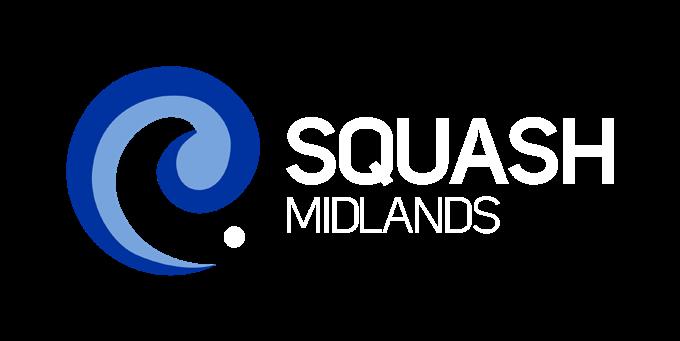
Looking to do an upgrade to your club or give it a facelift?
Click on the links below for tips on:
• Floor cleaning
• Wall cleaning
• Wall maintenance and repair
• Squash court foor sanding
• Squash court foor replacement
• New court lights
• Court heating and ventilation
• Changing room and bathroom facilities
• Lounge facilities
• Kitchen / bar facilities

Looking to build a new facility or expand your existing club?
• Needs assessment
• Feasibility
• Facility guidelines
• Design and consent
For information contact our Facility Advisor Jamie Archibald jamie@squashnz.co.nz
Click HERE to see special deals for affiliated squash clubs








Monday 7th July at Pupuke Golf Club, North Shore, Auckland
$400 per team (4 players)
Includes:
• Green Fees
• Nibbles
• Team welcome pack
• Meet and greet Paul and Joelle
• And a fantastic day out
9am register, 9:30am tee off (Ambrose format – shotgun start)
Carts available (limited) - $50
Prizegiving and nibbles to follow
Click HERE to find out more and to register your team
Limited numbers, first in first served
Contact admin@squashnz.co.nz

Various sponsorship options still available or donations for the day will be gladly accepted


Join in and play with us!

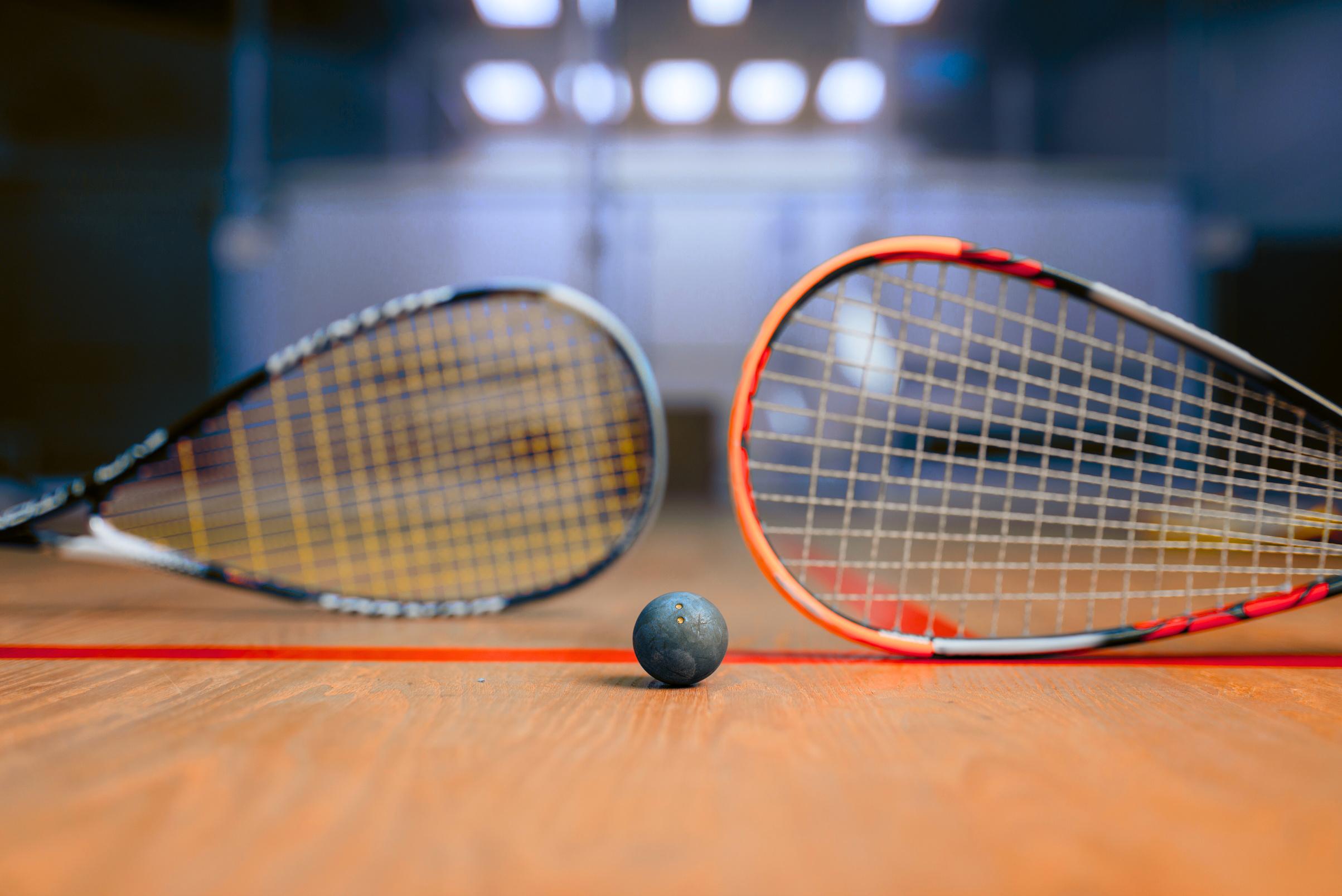

When it comes to gearing up for squash, most players immediately think of their racket. After all, that’s what hits the ball, right? But there’s one piece of equipment that arguably matters even more—and it’s right at your feet. Yes, your shoes.
It’s common to hear someone ask, “Do I just need nonmarking soles?” The assumption is that any indoor shoe will do. But squash isn’t just any sport—it’s fast, dynamic, and demanding on the body. That’s why your footwear isn’t just a court requirement—it’s your foundation.
Grip and
Squash is all about split-second decisions, quick pivots, and lunging into shots. A quality squash shoe provides the grip and stability you need to stay in control, reducing your risk of slipping or injury.
Injury Prevention
Most squash injuries occur below the knee—and many are preventable with the right footwear. Shoes that fit well, support lateral movement, and grip the court can help keep you healthy and playing longer.
Support and Cushioning
Every rally sends shockwaves through your feet, ankles, knees, and hips. Squash shoes are engineered to absorb impact and support explosive, multi-directional movement. Regular trainers just don’t offer the same protection.
Want to move faster, recover quicker, and play more confidently? The right shoes can make all the difference. Proper footwear enhances your ability to push off, stop sharply, and change direction with ease.
• Try Before You Buy: Visit your local pro shop or sports store and try on multiple brands. Wear the socks you usually play in to get an accurate feel.
• Time It Right: Your feet expand during activity, so try shoes on later in the day for a more realistic fit.
• Move Around: Don’t just stand there—bounce on your toes, simulate lunges, and lightly jog in the shoes. You don’t need to do a full ghosting routine, but make sure they feel right in motion.
• Ask Around: Talk to your playing partners about their experiences with different shoes. Everyone’s feet are different, and firsthand feedback can be invaluable.
• Fit Matters: Pay attention to width, heel cup shape, and lacing systems. These small differences can have a big impact on comfort and performance.

So next time you’re thinking about upgrading your gear, don’t just look at your racket. Start from the ground up. The right pair of squash shoes isn’t just equipment—they’re your most trusted partner on court.
Your feet will thank you.
With the competitive season in full swing and SuperChamps fast approaching, one often-overlooked moment could be the difference between victory and defeat: the 90-second break between games.
In squash, managing key moments can swing a match. And this short window—just a minute and a half—isn’t simply time to catch your breath. It’s a strategic opportunity. If a player or coach doesn’t use it wisely, the consequences can be both emotional and tactical. But when used well, it can shift momentum, reset focus, and fuel a comeback.
The Power of the 4 R’s
To maximise the impact of this break, players and coaches can follow the 4 R’s:
• Relax Let go of any tension. Take a deep breath. Reset your body language. Whether the previous game was a win or a loss, step away mentally and physically.

• Reflect What just happened? What worked? What needs tochange? This isn’t a time to overthink—pick one or two key insights.
• Refresh Hydrate. Towel down. Adjust your gear. These small actions help reset the body and regain a sense of control and readiness.
• Refocus
What’s your mindset heading into the next game? What’s the plan? Mentally park the past and commit to the next point, the next rally, the next opportunity.
Coaching During the 90 Seconds
Coaches play a critical role in this moment. But this isn’t the time for a lecture or a long list of tactics. Players are already processing fatigue, emotion, and pressure. The best coaching in this moment is:
• Calm and composed—especially if the player is flustered.
• Simple and clear—one tactical message, one motivational cue.
• Confidence-boosting—a reminder that they’re capable: “You’ve got this,” or “You’re doing exactly what we planned.”
The 90 seconds between games in squash isn’t just a break—it’s a chance to reset, regroup, and re-engage. Whether you’re coaching or playing, use the 4 R’s—Relax, Reflect, Refresh, Refocus—to keep yourself mentally sharp and strategically in the game.
Make every second count.


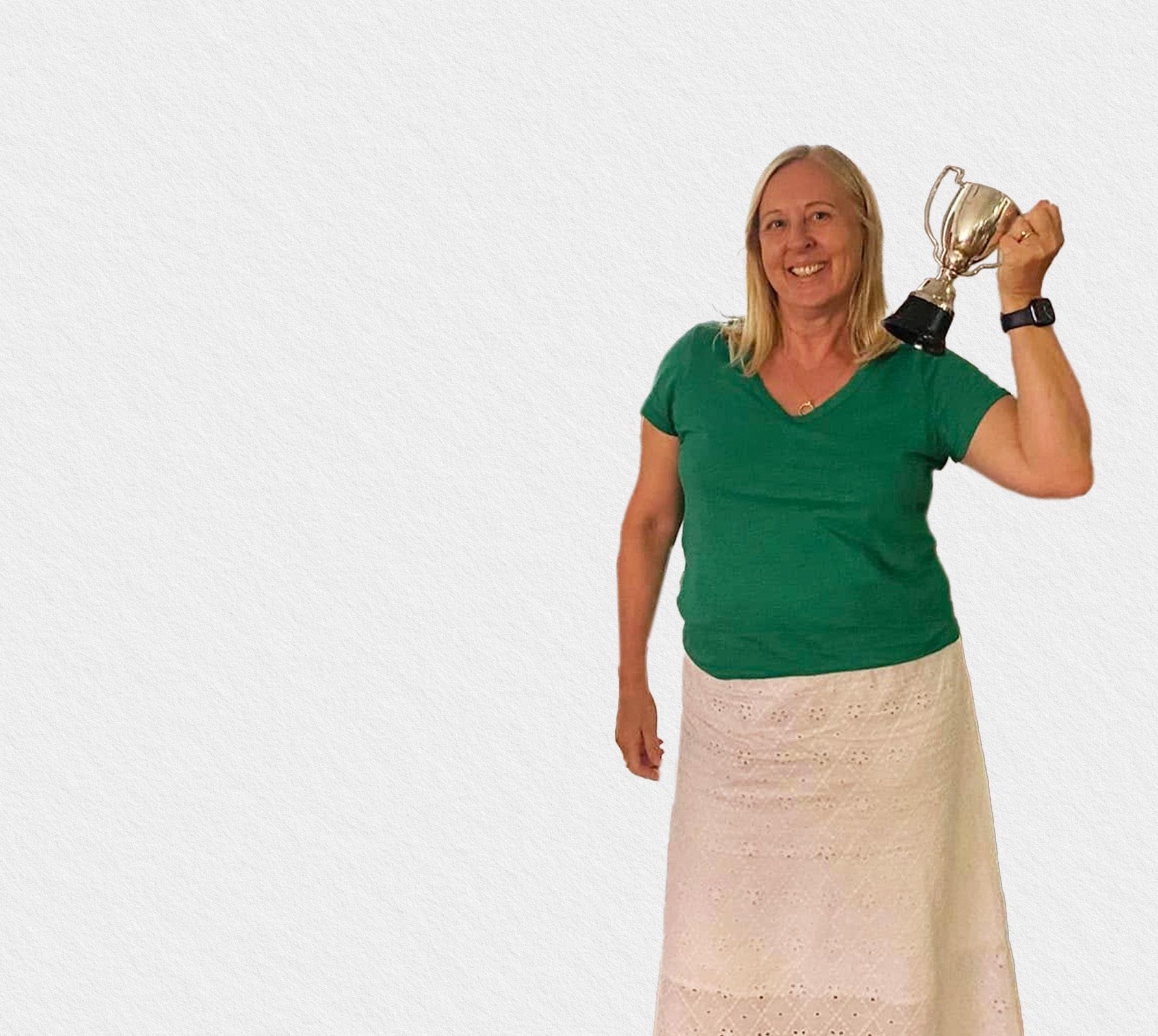
Tania recently took over as Squash Chairperson for Hamilton Squash & Tennis Club at the latest AGM in March 2025. She has been instrumental, along with a few other key people in revitalising and growing the HSTC Squash Committee. Tania is both a player, sponsor and keen volunteer, with her past skills helping out in the kitchen at tournaments.
She has taken her new role in her stride and thrown herself into learning everything she can to ensure smooth running of tournaments and events at HSTC. Her most recent being a main volunteer in helping behind the scenes for the Oceania Junior Championships. Creating a google spreadsheet with tournament controllers, first round markers, contacting local businesses for the player packs and general cleaning up and tidying of the HSTC.
Two weeks later she was learning how to run her first tournament. She put draws together, organised first round markers, tournament controllers and sponsors for the Hamilton A2 tournament. Tania also helped organised the HSTC Open Day and has created working groups within the club, to help key areas thrive within the club.
Being one of the faces of Squash at HSTC, Tania is extremely welcoming to new members and helps to organise games with other club members and creates ways of new members being able to contact other current members for games.
Lastly Tania has been an instrumental connection in securing one of the biggest tennis sponsorships that HSTC has seen. She worked together with HSTC to sponsor Summer & Winter Business House, as well as create the first Corporate Tennis Challenge.
Squash comes from a long lineage of sports played with a racket. Before squash, there was the game of rackets. Before rackets there was real tennis. Real tennis was already played in the 13th century, and rackets can also be traced back several hundred years. Squash would, after its birth in the 19th century, continue to be modelled on its parent game rackets until the early 1900s, by which time squash had outgrown its forerunners.
Real tennis is the father of all western racket sports. It can be traced back to at least the 13th century and was first played with the hand. In the late 15th century players stated using tennis rackets and soon after the net was introduced. The game of rackets, unlike real tennis, is played against a high front wall instead of over a net. It is a very fast game, played with a small hard leather ball on a court the size of three squash courts but much higher.
Harrow school, a public school for boys founded in 1572 and located in Harrow, north-west of London, England is where squash originated. In the first half of the 19th century rackets was very popular and the courts were generally only available for the oldest boys. So, the younger pupils invented their own game instead, using a cut-down rackets racket and a ‘squashier’ ball.







4th – 6th JULY NORTH SHORE SQUASH CLUB

$50 entry fee
Entries Close 25th May
Enter through MySquash Competitions
Played in conjunction with the National Graded Championships Men’s & Women’s Open Divisions only – Top 32 players entered as at 25th May


Squash players and fans, there’s never been a better time to get connected with your interclub and team competitions. The MySquash Competitions platform is making it easier than ever to stay on top of the actionbefore, during, and after the match.
Curious about upcoming draws, team line-ups, or where you sit on the points ladder? With just a few clicks, you can view match schedules, competition standings, and much more. To get started, check out this step-by-step guide: View the Overview.
Players, entering your interclub match results is now a breeze. A short video tutorial walks you through the process so you can input scores quickly and accurately, helping keep the competition up to date: Enter Match Results.
The newest addition to the platform is the live scoring feature. Now you can track and enter scores in real time using your own smartphone or device—perfect for players, coaches, and spectators alike. This interactive feature brings a new level of excitement to interclub nights. Learn how to use it here: Live Scoring Tutorial.
With MySquash Competitions, managing your interclub experience has never been more accessible—or more engaging. Whether you’re a player or a fan, you can now stay in the loop, in real time.
Looking for a fun, flexible way to stay active, challenge your mates, and climb the rankings? The new Ladder feature in MySquash Competitions is here—and it’s designed to get you playing more squash, more often!
Ladders are ongoing, challenge-based competitions where you work your way up the rankings by playing others—perfect for clubs, playing groups, juniors, or anyone keen to compete.
• Easy to Set Up
• Start a ladder for your club or friend group in minutes—customise dates, rules, and how challenges work.
• Smart Challenge System
• Challenge players ranked just above you, play your match, and if you win—move up the ladder!
• Live Updates & Scoring
• Enter match results instantly and watch the rankings shift in real time.
• Player-Friendly Controls
• Heading away or injured? Hit “Pause” and jump back in when you’re ready.
• Seamless Club Management
• Organisers can add players in bulk, seed rankings, and manage everything from one dashboard.
Whether you’re a club admin or a social player, MySquash Ladders are the ultimate way to stay engaged and competitive—all season long.
Log into MySquash Competitions and check out the new Ladders page today!
If you have questions regarding MySquash
Please send your question to admin@squashnz.co.nz
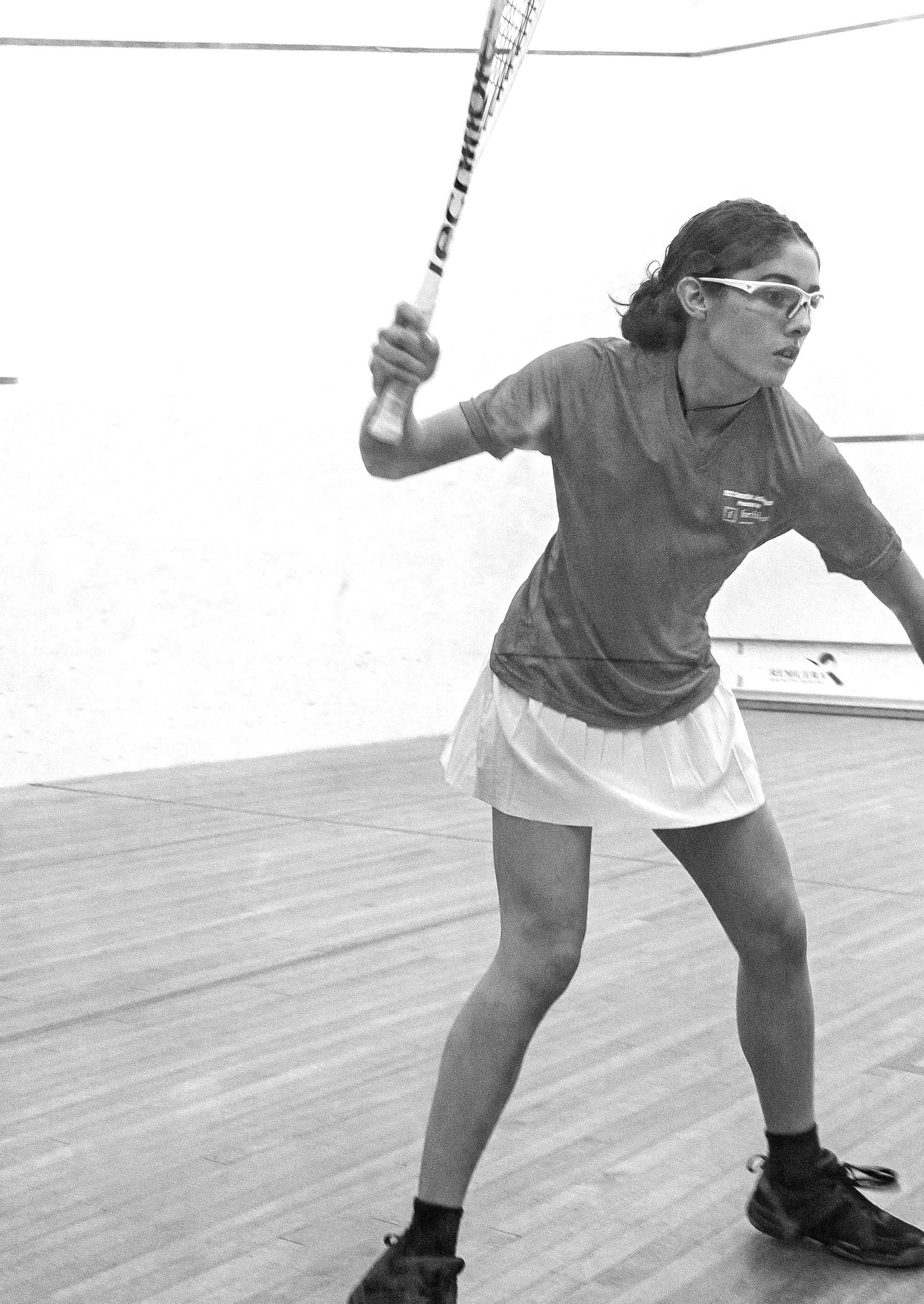
MOST IMPROVED FEMALE

PETRA TROUSILOVA / Wanaka
MOST IMPROVED MALE congratulations congratulations
36.4%

SCOTT LEWIS / Mangakahia
96.3%
Event
New Zealand Junior Open
Canterbury Junior Open
Oceania Junior Championships
Central Junior Open
Auckland Junior Open
Waikato Junior Open
North Island Junior Championships
South Island Junior Age Groups
Wellington Junior Open
Northland Junior Open
BOP Junior Open
NZ Secondary Schools Squash Nationals
Eastern Junior Age Groups
Otago Junior Open
Southland Junior Open
Midlands Junior Open
G.J. Gardner Homes NZ Junior Age Group Championships
NZ Inter-Disrtict Junior Team Championships
Date
7th - 9th March
4th - 6th April
19th - 21st April
23rd - 25th May
6th - 8th June
12th - 14th June
28th - 30th June
11th - 12th July
17th - 19th July
25th - 27th July
25th - 27th July
1st - 3rd August
22nd - 24th August
22nd - 24th August
29th - 31st August
5th - 6th September
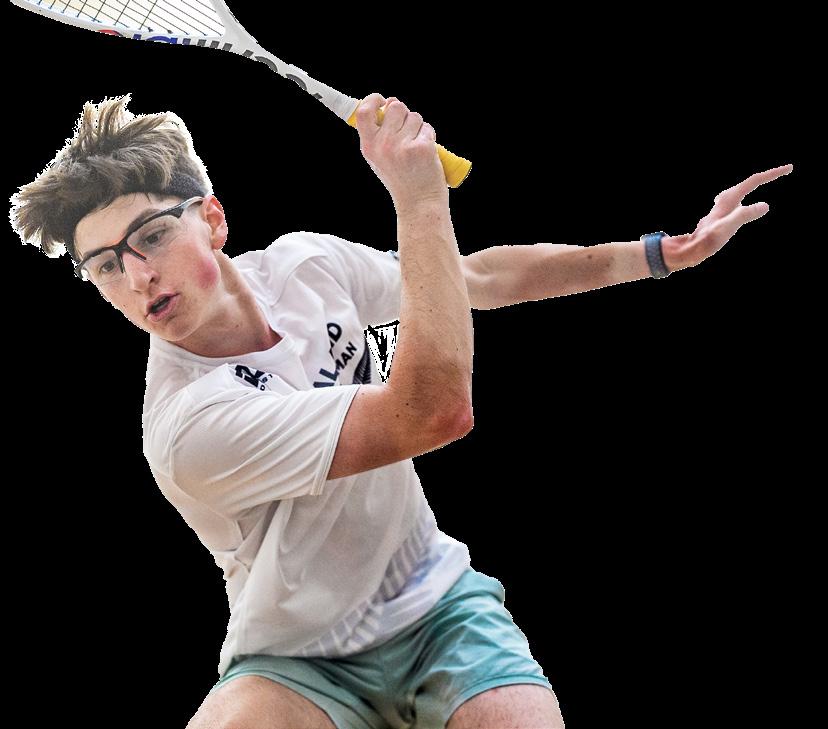


Venue
Christchurch Squash Club
Rangiora Squash Club
Hamilton Tennis & Squash Club
Ohakune Squash Club
Remuera Rackets Club
Morrinsville Squash Club
Whangarei Squash Club
Ashburton Squash Club
Tawa Squash Club
Keri Keri Squash Club
Whakatane Squash Club
Hutt City Squash Club
Hawkes Bay Squash Rackets Club
Cromwell Squash Club
SquashCity Invercargill
Timaru Squash Club
26th - 28th September
29th - 30th September
Henderson Squash Club
Henderson Squash Club



New Zealand Masters Games
Auckland Masters
Central Masters
Canterbury Masters
Waikato Masters
Midlands Masters
Wellington Masters
Otago Masters
Masters Club Team Championships
Northland Masters
BOP Masters
Southland Masters
G.J. Gardner Homes NZ Masters Championships
NZ Inter-Disrict Masters Team Championships
6h - 9th February
20th - 22nd March
11th - 12th April
16th - 18th May
22nd - 24th May
11th - 12th July
17th - 19th July
8th - 9th August
8th - 10th August
22nd - 24th August
29th - 31st August
29th - 31st August
17th - 19th October
20th - 21st October

Whanganui Squash Club
Kumeu Squash Club
Okato Squash Club
Christchurch Football Club
Huntly Squash Club
Ashburton Celtic Squash Club
Pirates Squash Club
Hutt City Squash Club
Kamo Squash Club
Te Puke Squash Club
SquashCity Invercargill
Nelson Squash Club
Nelson Squash Club


Event
Waikato Open
Eastern Open
BOP Open
Auckland Open (PSA)
Southland Open
Otago Open
Northland Open
Wellington Open
Central Open
South Island & Canterbury Open
Midlands Open (PSA)
Date
14th - 16th March
2nd - 4th May
9th - 11th May
22nd - 25th May
23rd - 25th May
6th - 7th June
6th - 8th June
6th - 8th June
13th - 15th June
19th - 22nd June
28th - 31st June
Hamilton Squash & Tennis Club
Hastings Squash Club
Taupo Squash Club
North Shore Squash Club
SquashCity Invercargill & ILT Stadium Southland
Otago Squash Club
Whangarei Squash Club
Tawa Squash Club
SquashGym Palmerston North
Christchurch Football Club & Richmond Squash Club
Temuka Squash Club
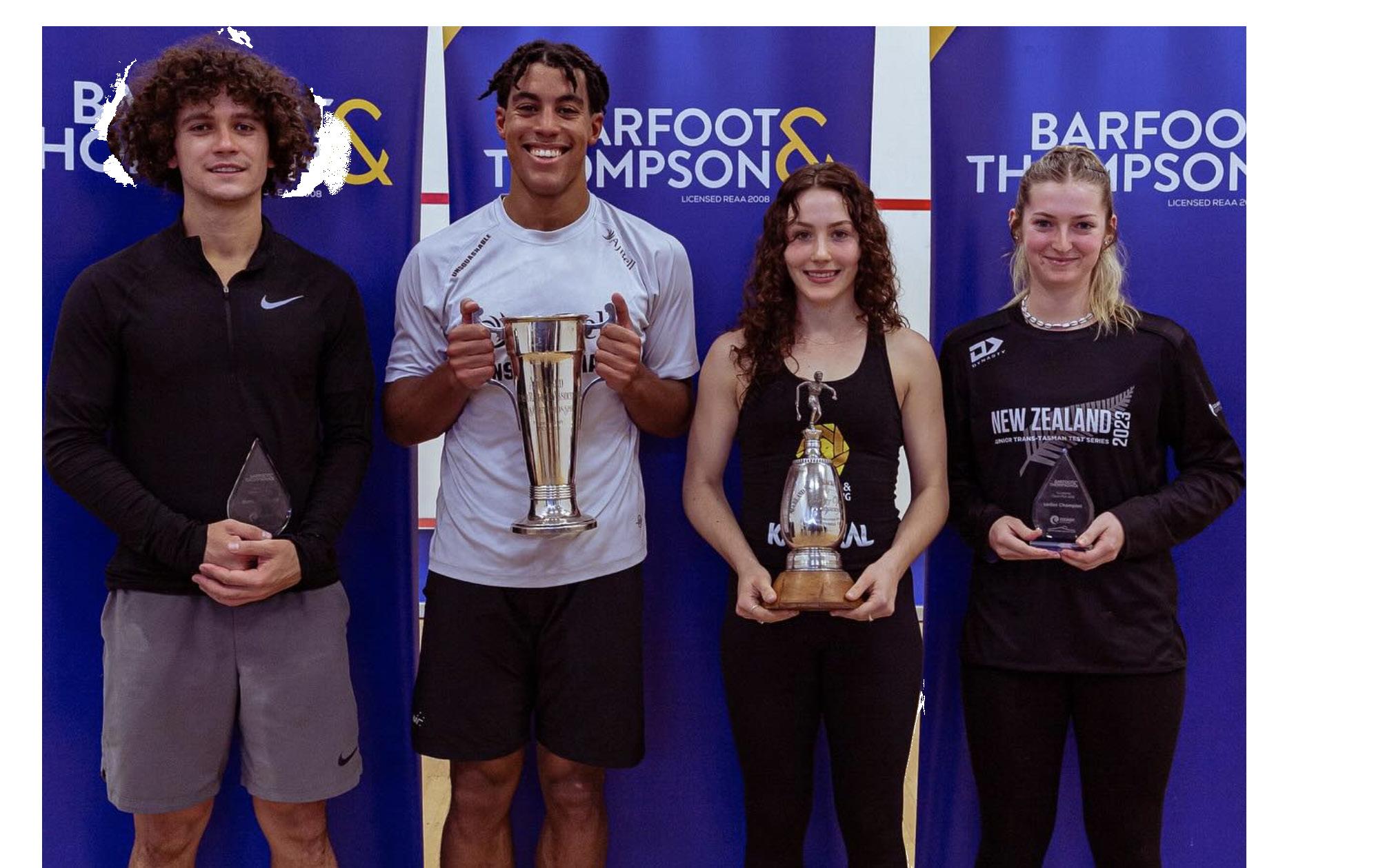

4th - 9th
7th - 9th
28th - 29th
19th - 21st
30th - 1st
28th - 30th
4th - 6th
11th - 12th
1st - 3rd
8th - 10th
15th - 16th
10th - 14th
10th - 14th
10th - 14th
10th - 14th
10th - 14th
26th - 28th
29th - 30th
17th - 19th
20th - 21st
New Zealand Open
New Zealand Junior Open
New Zealand Doubles Championships
Oceania Junior Championships
Mitchell Cup & Cousins Shield
North Island Junior Championships
New Zealand Championships + National Graded Champs
South Island Junior Age Groups
NZ Secondary Schools Squash Nationals
Masters Club Team Championships
NZ Inter-District Team Championships
G.J. Gardner Homes National Superchamps
B Grade Superchamps
C Grade Superchamps
D Grade Superchamps
E Grade Superchamps
F/J Grade Superchamps
G.J. Gardner Homes NZ Junior Age Group Championships
NZ Inter-District Junior Team Championships
G.J. Gardner Homes NZ Masters Championships
NZ Inter-District Masters Team Championships

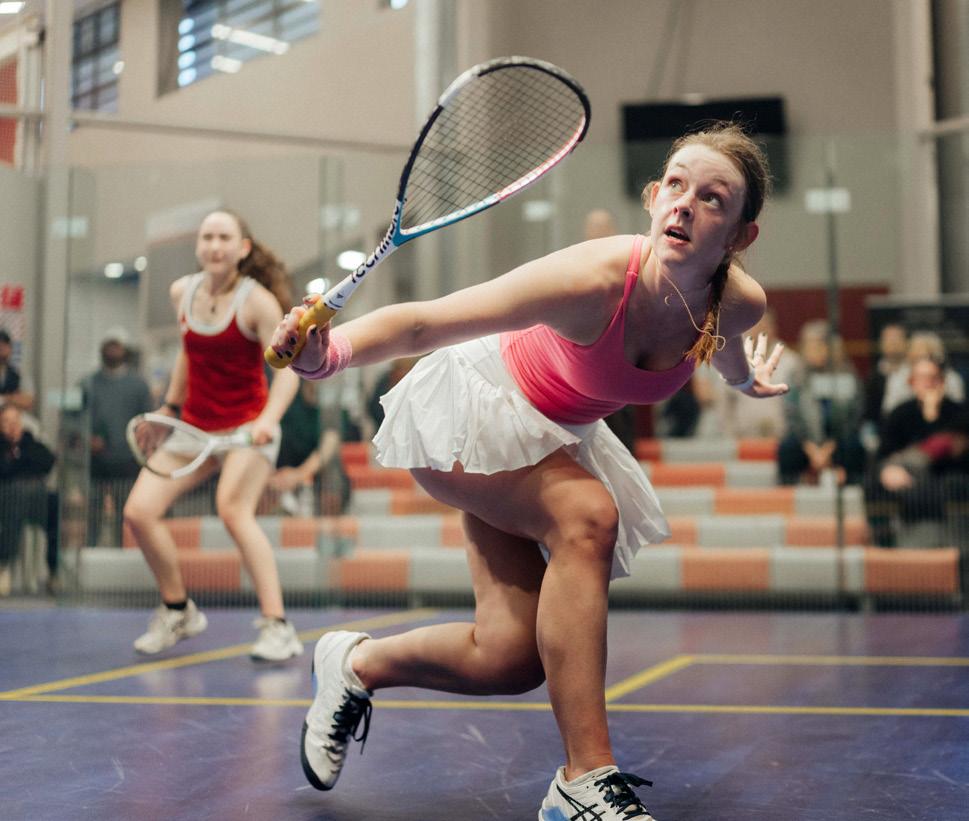
Isaac
Christchurch Squash Club
Hutt City Squash Club
Hamilton Tennis & Squash Club
Cambridge Rackets Club
Whangarei Squash Club
North Shore Squash Club
Ashburton Squash Club
Hutt City Squash Club
Hutt City Squash Club
Squash Gym Palmerston North
Timaru Squash Club
Otago Squash Club
SquashCity Invercargill
Hawkes Bay Squash Rackets Club
Geyser City Squash Club
Henderson Squash Club
Henderson Squash Club
Nelson Squash Club
Nelson Squash Club

Want to be featured in The Boast?
Email admin@squashnz.co.nz with stories from your club or district to be featured in the next edition of The Boast.
MAJOR PARTNERS

STRATEGIC FUNDERS

FUNDERS


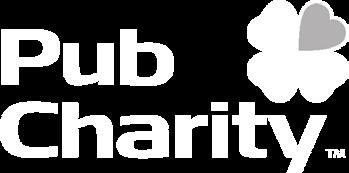

SUPPORTING PARTNERS
